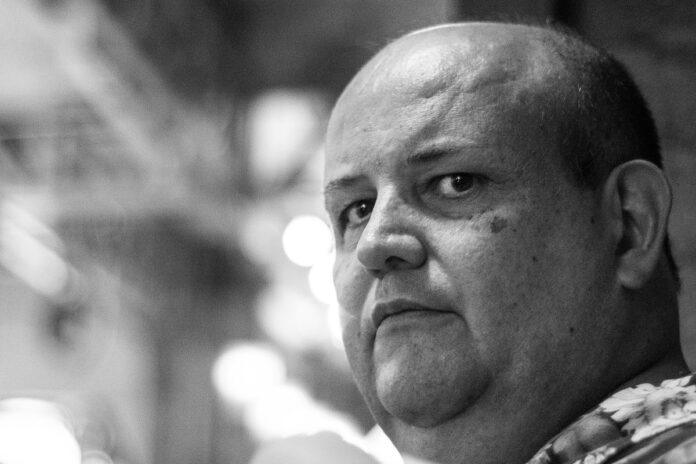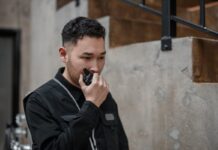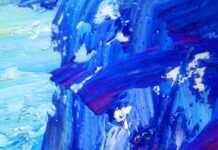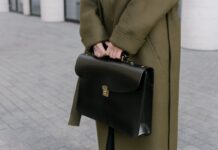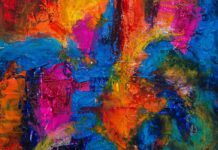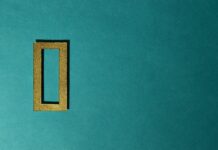( Part 2 of 3)
Click here for Part 1
*
8.
I have never lived anywhere with a swimming pool. And yet, I have a distinct memory of angels playing in the sunlight around the pool. I was chatting with someone who knew me very well, and even as I rambled on I could feel her actively forgiving me for stupid things in the past we both knew I had done. It was as if she wanted me to feel the warmth that the simple fact of my company gave her, and when suddenly, unexpectedly, I was unable to continue talking, she drew my attention to a pair of small yellow birds perched on an eave of the house before us. But otherwise, that pool is unknown to me and I am fairly sure I have never been beneath that sun. It must be more of a projection than a memory. And yet the subtlety of the contact is beguiling.
I am not sure I know enough about my life to tell the story of how it has gotten where it is. Even if I could, we would run head first into that biographical stink, butt right up against all my stuffing, as if it were piled up, the emotional baggage, on the cement floor of a small storage locker with a lonely light bulb dangling nakedly above it. Let me be reasonable enough to understand that you have your own stuffing, that there is no reason to privilege my stuffing as more interesting than yours. I am not particularly interested in your stuffing, neither the smell nor taste nor taking in the general aspect of it. Therefore, I cannot bring myself to force-feed, in the wretched name of art or any other supposed cause, would prefer not to inflict upon you, to make you the improvised audience, the paying customer, the force-fed consumer, as it were, of the wordy little mess that would be the result of my own sawdust disembowelment.
The moment had fallen. So what was there then? There had to be something in the chill, the chill between us, the chill that is us. And yet how to focus on anything beyond what was done. How to keep on after having let out that it would be so much better to have fallen silent. How to find where to walk along the word, further, to get all the way to the marrow under all the happened things strewn around.
In the always musty and somehow brittle grey light, Osoby searches for his cat under the bar tables. But this is just a trick to avoid conversation, the cat could take care of herself, and being distracted kept even the most innocent inquiry at arm’s length. Also, it was a way of postponing rushing out into the bleak openness of the street.
9.
I become aware of my head beginning to sweat in the most startling way. Soon the sweat has rolled down and drenched the entire top portion of my shirt. Perspiration like thoughts, like a look, like hearing all the birds outside at once, begins to radiate off the surface of my skin, salving my skull, so that even the mosquitos are confused and do not know what to do.
The visible is what we have managed to catch, that husk that registers after the flame has left it. Reality is what has dropped into death. The soul is a folded thing that will not stay so. Habitation bursts from containment like an exhalation, like a wingbeat.
Someplace public, all the time, a father picking his five-year-old son’s nose. The intimacy we are left with, a daily domestic interference with another, handled deftly and without apology. What resulted after someone said, “Come here,” to someone else. Our animal closeness remembered later as a brusque intrusion, and missed fondly.
Perhaps the less said about the Perch the better. It was a whim, a caprice. There were various campaigns among the neighbors to have it torn down, It was, after all, rudimentary and ugly. But it afforded an extraordinary view and airiness. It was an eyrie. It was a makeshift little platform that extended out of Osoby’s window. Nonetheless, it was as close as you could get to liberty on the seventh floor.
10.
Leaks in the crust of the sky, leaks stain my ceiling, leaks in my head, where each drop-splash blooms a puffy cloud that partially or completely covers a word or thing. Which are the words I no longer remember? Hard to tell. I can feel the occasional having to go around them. The struggle to advance toward a clear phrase, for things not to get too mucky.
To become something two-dimensional, something seen only, that possibility seemed to tilt toward the good. There was something so graphic about an image, so incorporated into everything else. Especially given that now everything broke back down perpetually into the moment. My living was nothing more than flattened instances.
So much inconclusive information, like the surf erasing experience and imagination, palpability and permanence. I hold an afternoon before a sprawling tree at high value, but I no longer live in the most orange house imaginable.
Much of life is taken up not with repetition, but with approximations, semblances. An event, a phrase, a detail, will be a semblance of something that came before. It is as if one covered an inked image with that of another stamp, almost identical to the first, and then another and another. Each stamp is distinct, perhaps even unique, but the image that remains becomes increasingly blurred, particularly at the edges, due to incessant superimposition. This lack of definition of the moment causes each of us to gradually lose his or her footing in the real.
A hallucination disorients because it is a moment of lucidity adrift. A sensation’s bearings, the limits of context for even the most distinct impression, are essential for things to actually happen.
An ailing friend lies under blankets, his notebook, papers with test results on them, the wrapper of an unfinished snack, and a vitamin shake cup strewn about him. His eyes are tired. He slips away from our shared conversation behind panes of thoughts that have just occurred to him. Now in a private conversation with himself, he mumbles shards of his inner meanderings at us as if expecting others to follow the twists and windings of topics he is reminding himself of, that he must not forget to address at some point. These concerns reveal themselves in groups, like the shapes of thoughts that, superimposed on each other become the flowers of the moments he is struggling to share with us.
Outside, the streets are full of marchers, beating out their frustration and pain on pots and pans, a sea of muted bells searching desperately for some resonance.
Malio: What if I took this hammer, and I hit myself right in the forehead with it, as hard as I could?
Osoby: For me, at least, it would certainly be unexpected.
Malio: Would you do the same?
Osoby: No.
Malio: Why?
Osoby: Because, it would hurt like hell.
Malio: You are a moralist.
Osoby: Then moralist and practical coward are the same thing.
Malio: Are you telling me I’m stupid?
Osoby: I am telling you that never, not even for a single instant, have I ever felt nothing.
11.
When I leave the house, distinct things happen. It is I, as the link between such events and my incessant pacing about my rooms, passing from familiar insides to new familiars in some elsewhere. Memories, intimate musings, objects contained in the murky inscrutability of a perfect-sized box, victims of my devout caresses, I that became indistinct, among those who could potentially have left such enclosed ruminations at all. Did I trust this or that vision? Am I chatting with someone right now, someone who summoned me to lunch beside a silent river? Or will I be wakened mid-sentence by the falling as I lurch there dozing in my chair? Are all of those distinct outlines out there somewhere?
I am in Mexico. There is no particular reason that it be Mexico. It is just called that. It may have relevance only as just another Latin American country, a region I am told does not exist. Everything here is elaborately difficult. There is no public property separating one private property from another. So the only way to go anywhere is to trespass on other people’s land continuously. No roads. Boundaries are marked in the sickly crab grass with stones or with wobbly chalk lines. My movement is perpetually beholden to unknown owners. Explanations are called for at every boundary. I wake, twenty minutes have passed, what was in my hands is on the floor. Another boundary, another set of explanations.
Leaving the house. How can the words you are saying in Turkish be so exact? How can the edges of the walkway still be wet from the morning’s rain? After a certain point, I have lived more inside myself than outside myself. Or is it the other way around? And yet the air is a little too muggy, and the flock of birds startled into flight still assume a momentary shimmering mass in the open expanse of the square. So often just for coffee or tea, just for conversation, a gesture of compassion, of tenderness. The sound of friendly laughter, experienced later while looking between exceedingly beautiful curtains at a yard where someone has hung the wash.
I began to want to speak about this the day I split my forehead open. Perhaps after. There are no external events in a life. Nothing arrives, everything sprouts out of its own soil.
So. The story of a man who never leaves the house, who can never leave the house, definitively. More precisely, the story of a man who can never be sure he leaves the house. He has the impression that at one time he used to leave his house. But this is just an impression, and though it has the solidness of a memory, he cannot be sure this happened either.
I do go out. It’s just that in memory what is left are distinctly limited moments, brightly colored, I want to say hand-painted, but only charming to me to the extent that they are fragmentary, quaint in what they leave to the imagination. That moment of putting my coat on in the vestibule, that is a good and re-usable moment.
When one lives in relation to another, one must enter into and learn the language of insufficiency. One must learn that, like a sculptor’s mold, this perpetual lack is actually an affirmation. To live diminished is to live in the face of that which is indiminishable. That one will never give all that was needed is as human as exhaling.
And then, at a certain point, it became clear that a further membrane existed. Though by no means easy, it was one thing to enter the church, but another completely to begin to approach the altar. This wall at the other end of thinking is the skin of imagination. Its surface is covered with bright materials like silver, copper, and gold. This hints at a light beyond, on the other side. Or perhaps it is a warning that as light bounces off, so any attempt to reach the other side is futile. To place a hand upon the surface of this dividing wall is to have an idea so lucid that it is almost incoherent.
I remember asking for unbicchiere di Sciacchetrá at the small open-air café in the little village that had nearly been washed away by winter rains, where the villagers moved like a single organism to rebuild and reimagine their homes. These people who dwelled beside the sea were recalcitrant and steady, as they had been for centuries.
Victim, Osoby thought, don’t want to be that, so that something waits for me round every corner, some “what will be”, in order to achieve being the beautiful dead thing. Want to keep away from that, to be always inflicted upon, keep all of that shine at arm´s length if at all possible.
12.
I live with the dread that the contents of my thoughts are increasingly reducing themselves to encompass merely the state of my teeth and the engulfing sensation of my process of digestion at any particular moment.
It is risible that someone should worry about progressing in this book, given that every place, every situation that might lead to another, seems to have undergone a sort of self-effacement. Were we to progress here, where would we be going? It is difficult enough to maintain the illusion of a kind of substance, a word-to-word glue that allows me to sit somewhere at least. Although I cannot be sure where exactly, I do have my misunderstandings on the topic, irremediably personal and having nothing to do with certainty yet robust, not utterances without delusions, not words screamed across a canyon, but rather notes circled or underlined above the sensation of my ass pressing down on the chair.
Live among growing things. A clutch of horses at full gallop over a rising plain. A bevy of waterbirds splash away from their reflections. A burst of living, let that rustling in the cage be loosed at last forever. Try not to turn the corner. Right angles beg the question, refute the precedent, while presuming some advance. They place each argument ever closer alongside the last. Right angles are penning in what is left of the unscribbled spaces. Rather get out into the cold. Then a plate of knuckles and elbows with dumplings, and a friend to bring the beers to the table.
Despite the dour tones bestowed upon these streets by history, which for Osoby could be characterized as so much dead noise, the horizon had more recently begun sending its polluting neon buzz, a gift from the city’s industrial outskirts. In this way, he found himself strolling beneath festively pink and emerald skies.
Glum walked beside him, on his own course, haphazardly parallel and seemingly randomly present at all.
13.
My relationship to sleep has become increasingly troubling to me. Perhaps not so much with sleep as with the line, the instant when I cross over into, or back from, sleep. This line has become invisible and sudden, and thought is curiously independent of it, reason continuing as fluidly and richly as before without the need of actual stimulation. This disturbed me when I observed it in my father, and now I am shocked to find myself even more susceptible to it. It seems my mind has all the information it needs, and can continue from here on its own.
It’s not that I can’t imagine myself somewhere else. For instance, at that moment I was seated on a bench in the train station, even though there is no train anymore, and isn’t that the strangest thing of all. No, what I meant to say is: I don’t remember passing from my armchair in my little hollow to this bench where I now sat. I don’t remember opening the front door, though of course I must have, and I don’t remember my trip here, or why it was I came. I was there and now I am here, and that is all. I relate these lapses to my inability at times to physically write the words to an entire sentence without their becoming illegible scribbles before I can get to a period.
That someone might judge something I have lived as unreal is utterly meaningless to me. It is like saying to the charred corpse of someone who has just been hit by lightning, “My, how extraordinary!” At some point, it became clear that my desire is not Aristotelian. The lullaby of thought’s current carries me slowly through a city of canals. Dreams flow between dreams not because I am asleep, but because I am compulsive about expectation and interpretation. My objects, my rituals, my small exertions.
The refreshed, limb-threshing afternoon gives me where—smooth, concave, and leafed—to ease my smothered bones. Choosing such a moment under a marbled sky, stepping into it, un-names everything, branches breathing back in, circulates. Were they in flames before, my bones?
I am the cliffs that fell sleeping, all along the sea’s white lips, just a stretched and heavy bough from the ocean’s open mouth, bringing up its deep vowels, its howling that has crumbled rifts and fissures, cracks and creases in me as I slumber down, delving deeper into the featureless sand.
Life as in art. I am standing before someone’s vision of a sea of grandmothers. On the left panel, a tree is full of birds with grandmother heads. The right panel is an underwater scene full of pale finned grandmothers pursuing and swallowing large grey fish. Lastly, the middle panel is made up of long vertical boxes, where we find the grandmothers themselves, dried and stretched, and resembling hardened, emptied flour sacks.
“Ooooossoooooobbyyyyy!” the voice called up to him. And though he was indeed standing in the second floor pub, staring at a napkin, his mind was elsewhere. It began with something Osoby had heard in science class as a child. He had been told that molecules never touch, that they repulse each other before actually touching. What we called “touch” was then merely the charge around one magnet refusing to interact with the charge of another. This would presumably be true of extreme cases of touch, such as stabbings,
as well as of the softest caress. Matter, including the matter that makes us up, remains forever untouched. This idea instilled in Osoby a profound sense of isolation. He would spend his life musing over the possibility of taking off the gloves of matter, of a moment when he was not absolutely alone.
14.
The day was muggy and perfumed, conclusive proof once again that life is nothing more than a sticky infection, something enjoying its own rot. Something seething, something grown on, and adhering to, a rock. A spreading blotch, that is our resounding fraternity. The pulse that runs through everything alive is an attempt to burst out of its contemporary shell, as if bell-clappers were forever trying to shatter their bonnets. Reality has life’s egg on its face.
The end is undeniably somewhere in the middle. Perhaps I have already passed it. Proportions and rhythms are as tyrannical as air or water. To make a mess of it is almost inevitable. Frames are always gaudy, and plans fill ashtrays like the skin of empty thunder. It is a wonder that we ever coincide with our own breathing.
They understand everything we say, but we cannot understand them at all. Sometimes, they are hard to see. I had step over an angel on the floor just to crawl back into bed. It was trying to vomit, yet still fluttered its tendernesses at me as I passed. The world goes grayer when they manage to catch brief fits of sleep.
“When I was a boy,” said Glum, as if it had been seventy years and not fifty, “words were made of sand. You had to moisten them with spit if you wanted them to hold together. Or maybe you would burn them so they might go transparent. Fragile, but transparent.”
About the Author
The son of Colombian parents, George Mario Angel Quintero was born in 1964 in San Francisco, California, where he spent his first thirty years. He studied literature at the University of California, and was a Wallace Stegner Fellow at Stanford University. Under the name George Angel, he has published poetry, fiction, and essays in English and a book of short fiction, The Fifth Season, won the 1995 Fiction Collective 2 Nilon Award. A new and selected poems, On the Voice, was published in 2016.Since 1995, he has lived in Medellin, Colombia, authoring seven books of poetry, and three books of theater plays all in Spanish under the name Mario Angel Quintero.
He continues to write and publish in both English and Spanish. He is a visual artist and the director and playwright of the theatre company ParpadoTeatro, as well as a founding member of several musical groups. He is regularly invited to share his work at international festivals. Portions of his work have been translated into Macedonian, Portuguese, Swedish, Croatian, Bulgarian, French, Italian, Albanian, and Arabic. Five books of his work came out in 2020: La materialidad (Fondo Editorial Ateneo) and Cardos (Editorial Párpado) in Spanish in Colombia, Divental’albero (SamueleEditores) in Italian in Italy, Mojesvjetloidrugepjesme (2020, Drugapriča) in Croatian in Croatia, and Aqrab (Dar Al Rafidain) in Arabic in Lebanon.


